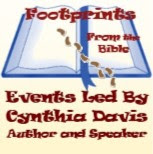The disciples and crowd were filled with expectation on the first Palm Sunday when Jesus entered Jerusalem to the cheers of the people. This was Messiah, the Deliverer who would cleanse the Temple and city and country of the hated Romans. Everyone was sure that Messiah would return Israel to her proper place in the world and all would be well.
God’s plan was quite different. When their expectations weren’t met, the people turned against Jesus, shouting ‘crucify him.’ Too often we box in God by trying to impose our plans for this event or that dream. Maybe we need to rethink our desire to control the outcome and let God have a little more chance to work!
A couple of weeks ago I attended a retreat where Bishop Frey talked a bit about our expectations of God. He reminded us that our God is a God of action. Throughout the Bible, we hear God say “I am the God who led you out of bondage,” I am the God who fed you in the wilderness,” “I am the God who redeemed you,” “I am the God who called you by name,” etc., etc. Despite that, we often have limits on our expectations of what God will do.
The Bishop reminded us that Jesus tells us not to limit our expectations just because it appears that God isn’t listening. In the parable of the widow and the judge, Jesus reminds us that it is important to continually bring our needs and desires to God in prayer.
“Then Jesus told them a parable about their need to pray always and not to lose heart. He said, ‘In a certain city there was a judge who neither feared God nor had respect for people. In that city there was a widow who kept coming to him and saying, “Grant me justice against my opponent.” For a while he refused; but later he said to himself, “Though I have no fear of God and no respect for anyone, yet because this widow keeps bothering me, I will grant her justice, so that she may not wear me out by continually coming.” ’And the Lord said, ‘Listen to what the unjust judge says. And will not God grant justice to his chosen ones who cry to him day and night? Will he delay long in helping them? I tell you, he will quickly grant justice to them. And yet, when the Son of Man comes, will he find faith on earth?’” (Luke 18:1-8)
Unlike the judge, who gives in because the widow nags, God gives us what we need out of love. When we give our dreams and desires and needs to God, amazing things happen. What God does with them, will be greater than anything we can imagine! I confess that I do try to outline for God the way things should go. When I remember and step back, then amazing ‘coincidences’ happen. Has that ever happened to you?
“Hope is the ability to hear the melody of the future.
Faith is the courage to dance to it today.”
Living out this quote is one way to move beyond our narrow expectations and embrace joyfully the promises and expectations of our loving God. We may need to let go of some of our plans and plots.
What expectations bind you? Are they expectations of yourself, your life, or even of God?
See you next week-Easter Sunday!












